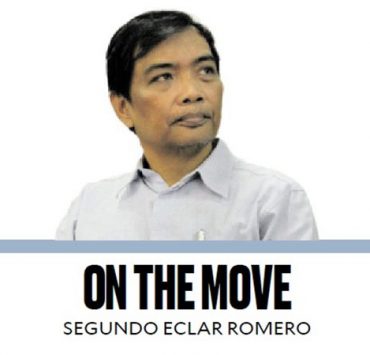Cleaning the House of Marcos

President Marcos’ stunning directive for his Cabinet to submit courtesy resignations marks a turning point for his three-year-old administration, a moment when the Palace, finally, appears willing to match rhetoric with resolve.
It’s a move no one expected from a chief executive better known for consensus than confrontation. It took gumption and the kind of political courage that could redefine his presidency—if he stays the course, that is.
Cleaning the House of Marcos, after all, requires more than a performance review. For this bold move to lead to real change, it demands cutting loose the dead weight. Which means letting go of underperforming and corrupt officials, no matter how loyal or closely connected to the seat of power they may be.
Already, some firings have been announced: Environment Secretary Maria Antonia Yulo-Loyzaga is out while Housing Secretary Jerry Acuzar and Foreign Secretary Enrique Manalo are moving to other posts. But five members of the economic team get to keep their jobs.
“It’s time to realign government with the people’s expectations,” the President said last week, adding that the public “expects results—not politics, not excuses.” In doing this, Mr. Marcos set the stage for what could be a genuine break from “business as usual,” a decision he characterized as a matter of “performance, alignment, and urgency.”
Historic electoral mandate
For the public, it is a welcome, if overdue, admission that the first half of the Marcos presidency has fallen short, especially for a government that rode into office on the back of high voter expectations and historic electoral mandate in 2022. Three years later, that immense political capital has diminished considerably.
Despite unprecedented government spending during the election year—on programs like Tupad and 4Ps—designed ostensibly to help the poor but widely seen as vote-buying tools, basic services remain in disarray. Education is in crisis, with schools still lagging behind in international assessments and failing global standards. Public health systems are languishing. Housing remains a pipe dream for millions. And millions more continue to suffer hunger and joblessness.
More than half of Filipino families, or 55 percent, rated themselves as poor in the latest Stratbase-Social Weather Stations survey, a number had risen steadily in the first half of 2025.
So the President is right to acknowledge the urgent need for a reset. But the public deserves answers as well: What criteria did the Palace use in deciding who stays and who goes? More importantly, were the replacements chosen for their competence or for their political connections?
Performance-based governance
This moment demands not just a reshuffling of the same old politicians but a no-nonsense shift toward performance-based governance, where agency heads are held accountable for both their intentions and outcomes.
The record P11 trillion in funding requests for 2026, up more than 20 percent from the previous year, only highlights the stakes in the face of limited fiscal space and a growing deficit. As Budget Undersecretary Goddes Libiran said, the executive branch is evaluating these proposals to ensure alignment with the Philippine Development Plan and the administration’s priorities.
But political infighting threatens to disrupt these goals. A weakened Marcos coalition failed to secure a Senate majority in the midterms, barely outpacing the five seats won by allies of Vice President Sara Duterte. The opposition, too, has clawed back space in the legislature. As we warned in these pages, these shifts, paired with the looming impeachment trial of the Vice President and rising public dissatisfaction, point to a presidency at risk of drifting into lame-duck territory.
A chance to reclaim control
But the bigger crisis is not political but moral. A government that cannot feed its people, teach them to read, write, and count, or offer real hope of a better life cannot claim to be doing effective governance. For the President to be able to say so, he must start acknowledging that the biggest problems are mismanagement and corruption at the top levels of government.
This is where the path gets difficult. As he weighs the courtesy resignation of his most trusted men and women, Mr. Marcos will need to make painful decisions: to remove not just crooked and ineffectual appointees but even some of his closest political allies and personal confidants. There can be no sacred cows in this Cabinet revamp.
To his credit, the President has declared that the time for “comfort zones” is past. Now, he must prove it.
This reorganization of his official family could be Mr. Marcos’ best chance to reclaim control of his presidency and to reassert a policy agenda amid factional squabbles. Again, it can only work if he walks his talk—if he fires those who must go, hires those who are capable, and above all, renounces transactional politics in favor of true statesmanship.





















